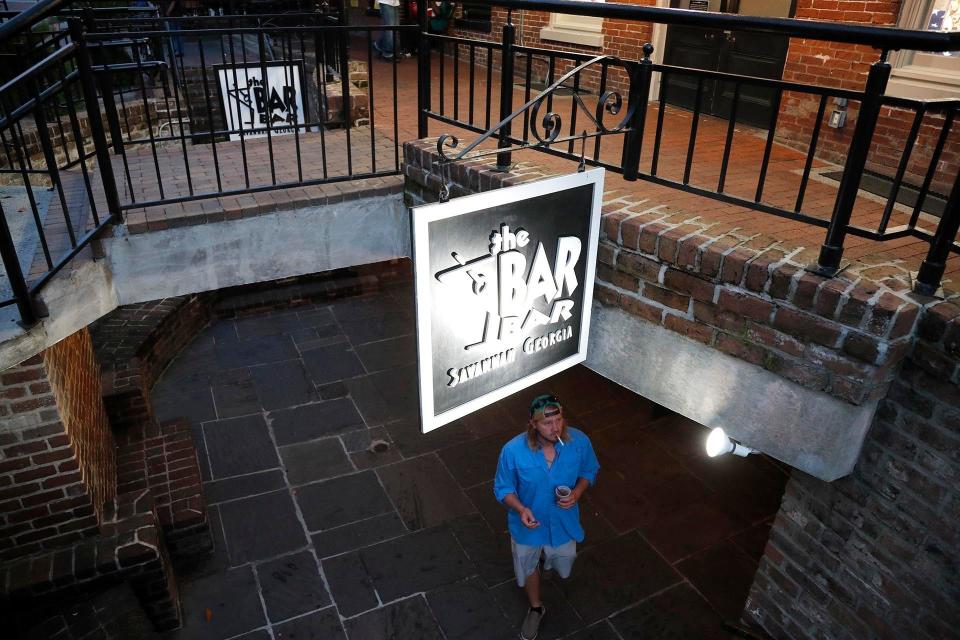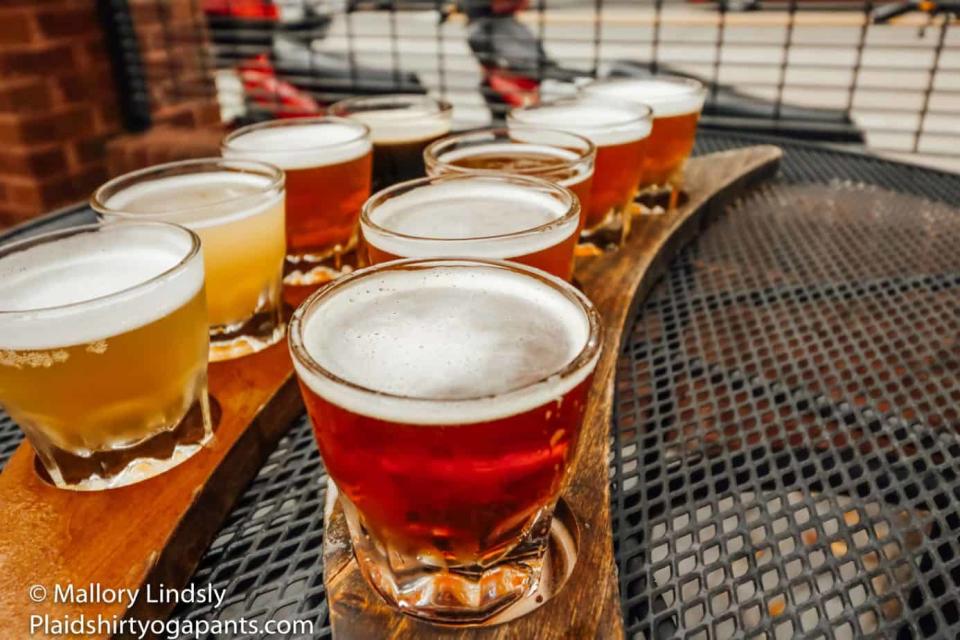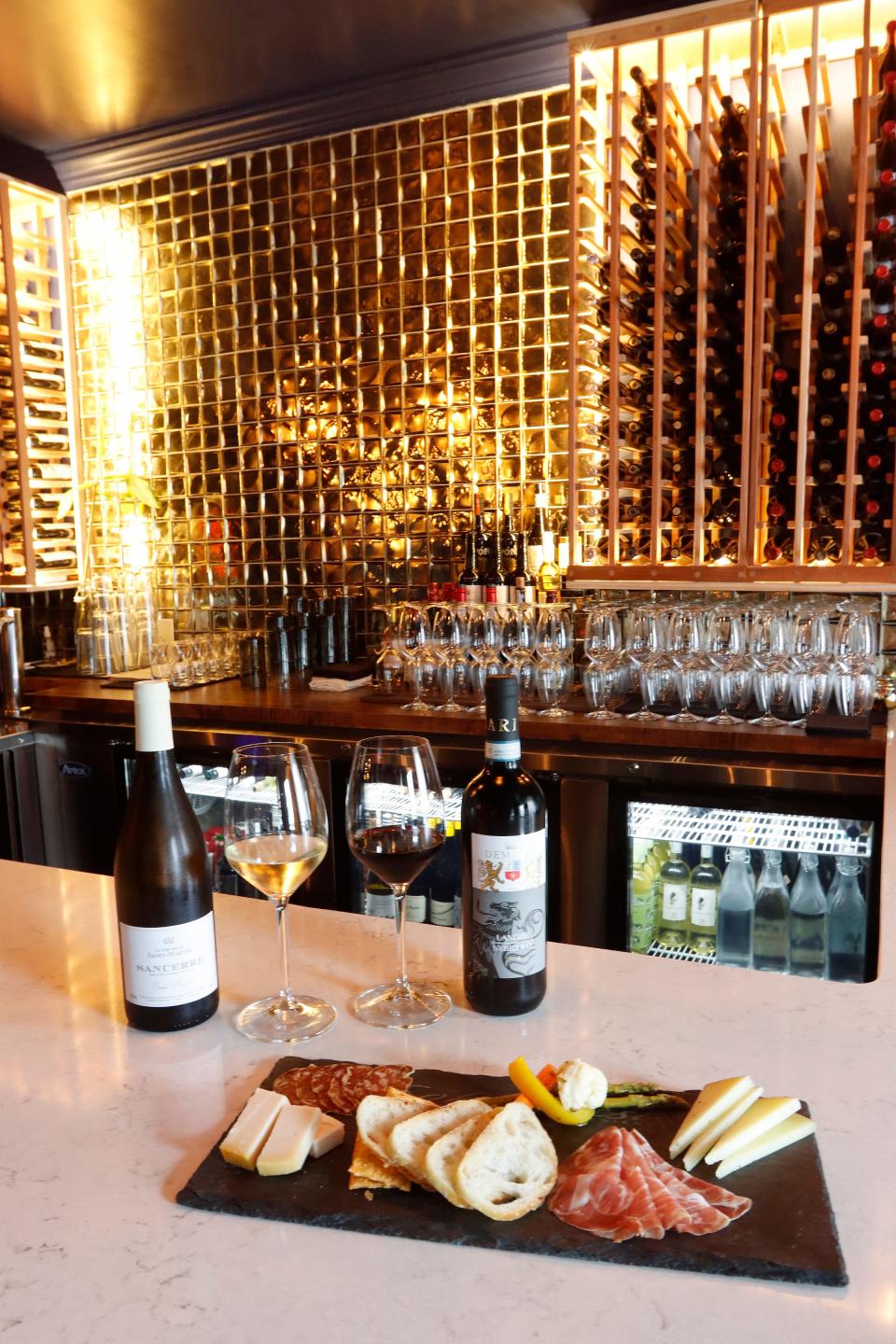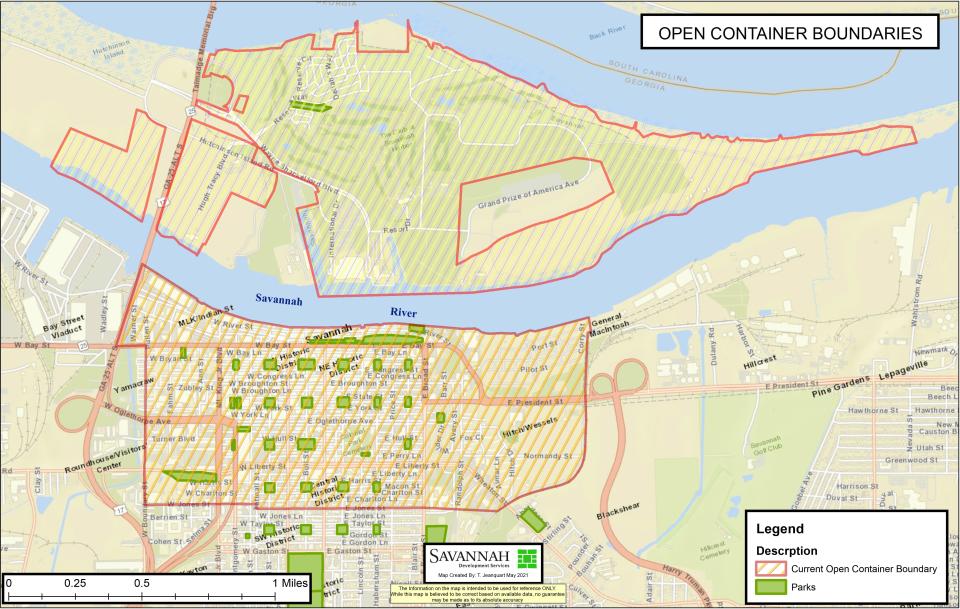Georgia relaxed alcohol laws during COVID-19. Here's how Savannah is updating local ordinance.
Difficult times led to drastic measures for Georgia's bars and restaurants in the summer of 2020.
The COVID-19 pandemic had briefly shuttered businesses that spring and hesitancy over gathering in public continued to dog taverns and eateries even after they reopened. State officials responded by implementing new laws surrounding alcohol sales, regulations local governments adopted unofficially as well.
Now, two years later, the City of Savannah is eager to make those changes its own.
City officials held a pair of public meetings on Oct. 5 to discuss the proposed changes and ask for feedback from business owners. The Savannah City Council will continue to revise the amendments at their Oct. 27 council workshop. Council will then have to approve the changes at a November council meeting.
Read more: Full presentation on alcohol beverage ordinance proposed amendments
Good food and great memories: Here are 6 closed Savannah restaurants we miss the most
The new ordinance would go into effect next year.
Here are the proposed changes that will affect alcohol-licensed businesses within Savannah city bounds:

Codifying state law
Distilled spirits take-out with meal OCGA 3-3-11
Permit retail consumption dealers (Restaurants with on-premises licenses) to sell distilled spirits for off-premises consumption in approved containers with the purchase of a meal.
Packaged Alcohol Home Delivery OCGA 3-3-10
Permit Class D (Retail Package Store) and Class E (Convenience and Grocery Stores) to conduct home delivery of distilled spirits, malt beverages, and wine. All other classes are not permitted for home delivery. (Delivery driver must be a direct employee of the alcohol establishment (no third parties, no Grubhub, Uber Eats, Drizly, Saucey)
Alcoholic Beverage Tastings
Permit Class D (Retail Package Stores) and Class E (Convenience, Grocery Stores) to provide tasting events of distilled spirits, malt beverages and wine. This code section will repeal and replace Class H (Samples), in the current ABO.
Take a look: Savannah's growing craft liquor and beer scene a budding promise for distilleries

Proposed local ordinances
Late Night Alcohol Permit (New Class K)
A proposed “late night alcohol permit” which introduces a new class K license drew the most questions and comments from business owners during the hour-long session. The ordinance calls for restaurants that “transition” into a bar/lounge during late night hours to apply for the new class K permit, currently outlined as an annual payment of $1,500.
This new license category addresses businesses that serve food and drinks, but change into a bar/lounge setting later at night, typically by closing their kitchen or modifying food sales. The transition changes the nature of the business and could introduce potential liability issues.

The city is also working with the Tourism Leadership Council and the Georgia Restaurant Association to ensure the proposed amendment is sound, according to Bridget Lidy, Savannah’s Director of Planning and Urban Design. The following requirements presented last week are as follows:
Permit restaurants to transition to a bar/lounge between the hours of:
Monday thru Saturday: 12:00 a.m. – 2:55 a.m.
Sunday: 11:00 p.m. – 2:00 a.m.
No one under 21 years of age is allowed on the premises during transitional hours.
Alcohol Transitional Permit Application along with payment of $1,500 dollars paid to the City’s Revenue Department
Only current ABL/Responsible ABL applicants can apply for Late Night Alcohol Permit
Additional Public Safety Plan must be turned into the SPD’s Alcohol Beverage Compliance (ABC) unit at the time of permit request
The following guidelines will be permitted during the transitional phase:
Cease or modify food sales
Entry fee
Employment of Security Staff (armed/unarmed)
Surveillance Cameras
Bring Your Own Bottle
A “bring your own bottle” ordinance amendment will bar guests from “brown bagging” or bringing and pouring their own alcoholic beverage in a non-licensed establishment. However, this does not apply to patrons within the open container district who bring in their to-go cups from outside of the business.
More: Yes, you can drink outside in Savannah, but only in certain areas. Where are the boundaries?

Selling, serving or dispensing alcoholic beverages through windows or doors
With the exception of Class D (package store) license holders with (state-approved) drive thru windows only, no licensee may sell or permit the sale or dispensation of alcoholic beverages through windows, doors, or other openings to sidewalks, parking lots, or to any other area outside the licensed premises, excluding approved adjacent patios.
People lining up in front of business entrances or along sidewalks can lead to fire hazards. The ordinance will require people to purchase alcohol within the premises of the business.
The city’s festival ordinance also provides exceptions for the requirements during festivals and other special events.
Where to-go next? How open container laws are evolving beyond Savannah
Armed security guards
Require all armed security guards working either directly for the alcohol establishment or contracted by the establishment to complete a background check.
Alcohol Review Committee
Establish Alcohol Review Committee (ARC) to collaborate with city staff and outside agencies involved in the alcohol licensure process to improve efficiency of the application process.
The goal is to shorten the time period that businesses have to wait for their alcoholic beverage license application to be reviewed by city council. The current wait time is about 90 days.
Alcohol License Waiting Periods
If a license holder’s license is revoked, another applicant from the business can reapply in six months. The original license holder must still wait the mandated 24 months.
If a license is denied by the city or surrendered by the permit-holder, reapplication may begin 12 months after.
Alcohol Beverage Compliance (ABC) unit administrative meetings
Require the appearance of the Alcohol Licensee or Responsible Party at the Administrative Meetings to discuss public safety plans along with policies and procedures after one or more violations have occurred at the establishment against the current alcohol ordinance, to include nuisance and public safety violations.
The current ordinance does not specifically require the licensee to attend administrative meetings. This amendment corrects that.
Revenue ordinance revisions
Late Night Alcohol Permit: $1,500
Alcohol Review Committee Application: $50
Discount for Businesses Owned by Veterans: 40%
Nancy Guan is the general assignment reporter covering Chatham County municipalities. Reach her at nguan@gannett.com or on Twitter @nancyguann.
This article originally appeared on Savannah Morning News: Savannah proposes changes to alcohol laws following COVID pandemic

